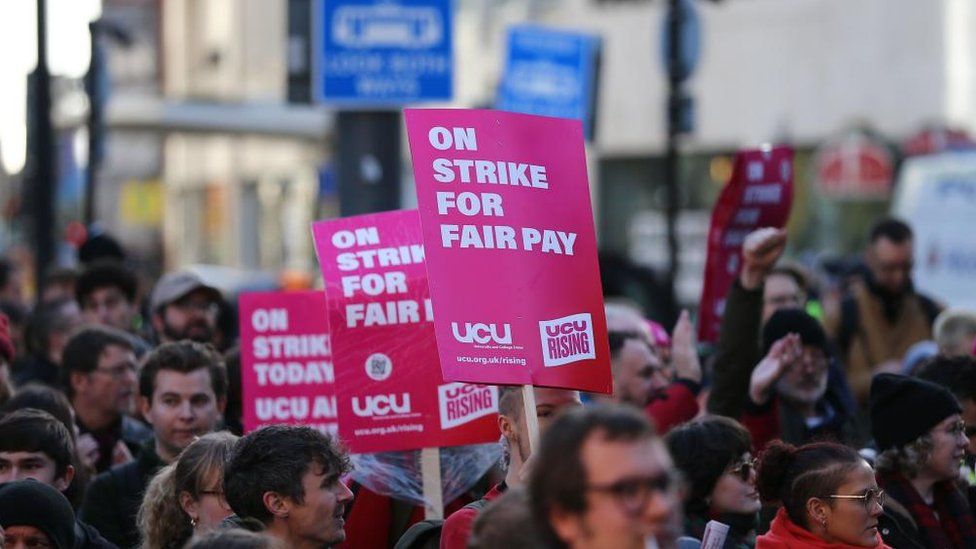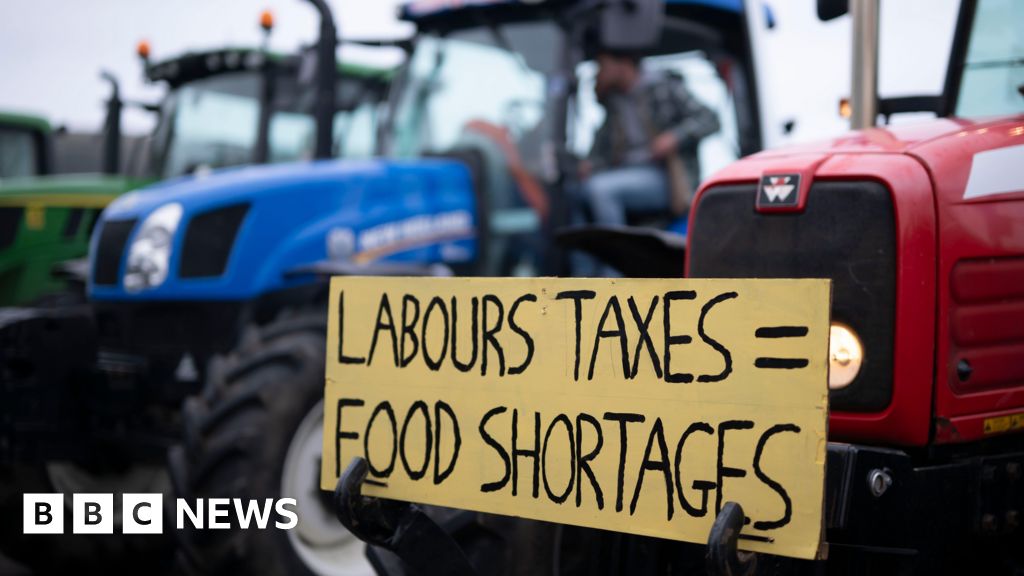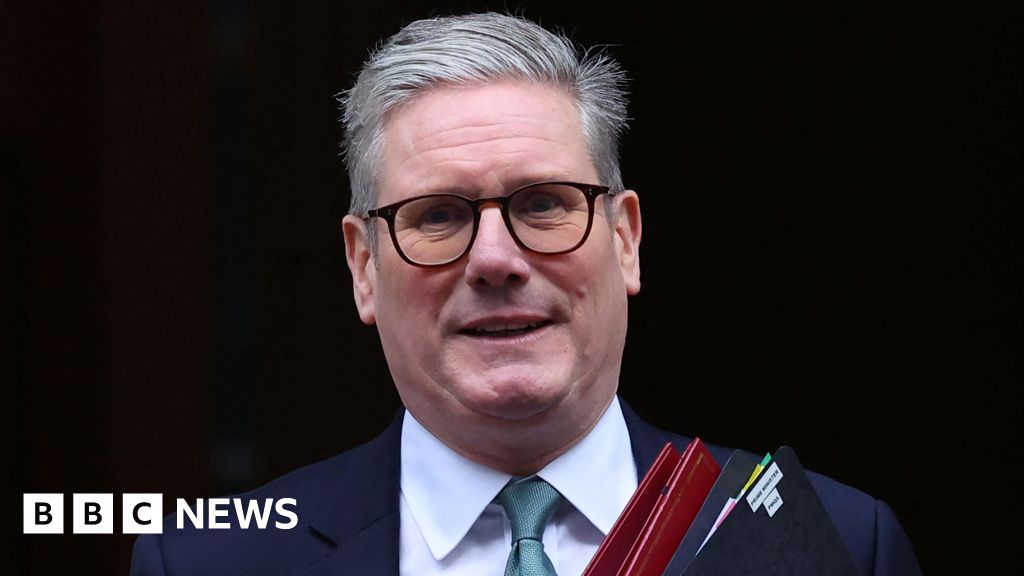ARTICLE AD BOX
 Image source, EPA
Image source, EPA
University workers are among those going on strike on 1 February
Mass strike action on Wednesday will cause "significant disruption", Downing Street has said.
Teachers, university workers, civil servants, train and bus drivers are all taking action.
Many parents are facing uncertainty as schools may not know until Wednesday morning whether they have enough staff to stay open.
Talks between teaching unions and the Department for Education (DfE) ended without progress on Monday.
The National Education Union (NEU) said Education Secretary Gillian Keegan had "squandered an opportunity" to avoid Wednesday's strike action.
The DfE has offered a 5% pay rise to most teachers for the current school year, but the NEU wants a fully funded above-inflation increase for teachers.
It expects about 23,000 schools to be affected in the first of its seven planned walkouts by teacher members in England and Wales.
Individual teachers do not have to say whether they will strike, so school leaders might not know what gaps they need to fill until Wednesday morning.
Some schools have already announced that they will close, but others are still deciding - meaning many parents are still waiting to hear whether they will need to make childcare arrangements.
Schools Minister Nick Gibb said the government expects the "majority" of schools to be open "in some capacity".
He said schools in England have been asked to"prioritise the children of critical workers and those children who are doing their exams".
But many students are likely to face disruption - for example, being given online learning to do at home.
Schools in Scotland are continuing to be affected by strikes, while most teachers in Northern Ireland will strike for half a day in February, too.
Workers from seven unions will be on strike on 1 February, the biggest day of industrial action for more than a decade.
Lecturers, librarians and other university workers belonging to the UCU union will join the walkouts.
So will train drivers belonging to Aslef, affecting services in England, Scotland and Wales,
About 100,000 civil servants will also be striking, as well as some bus drivers in London.
The action comes as the Trades Union Congress says the average public sector worker is more than £200 a month worse off compared with a decade ago.
The TUC will hand in a petition to Downing Street on Wednesday in protest at the government's proposed "anti-strike" legislation.
The new law would set minimum service levels that striking industries would have to meet before taking action.
The prime minister's official spokesman said: "We know that there will be significant disruption, given the scale of the strike action that is taking place tomorrow, and that will be very difficult for the public trying to go about their daily lives.
"We are upfront that this will disrupt people's lives and that's why we think negotiations rather than picket lines are the right approach."
The spokesman also said the announcement of an ambulance workers' strike on 10 February was "deeply concerning".
"We are putting in place significant mitigations, which have previously helped reduce some of the impact of these strikes," he said, and urged unions to reconsider.
Have you been affected by issues covered in this story? Get in touch by emailing haveyoursay@bbc.co.uk.
Please include a contact number if you are willing to speak to a BBC journalist. You can also get in touch in the following ways:
If you are reading this page and can't see the form you will need to visit the mobile version of the BBC website to submit your question or comment or you can email us at HaveYourSay@bbc.co.uk. Please include your name, age and location with any submission.

 1 year ago
22
1 year ago
22








 English (US)
English (US)